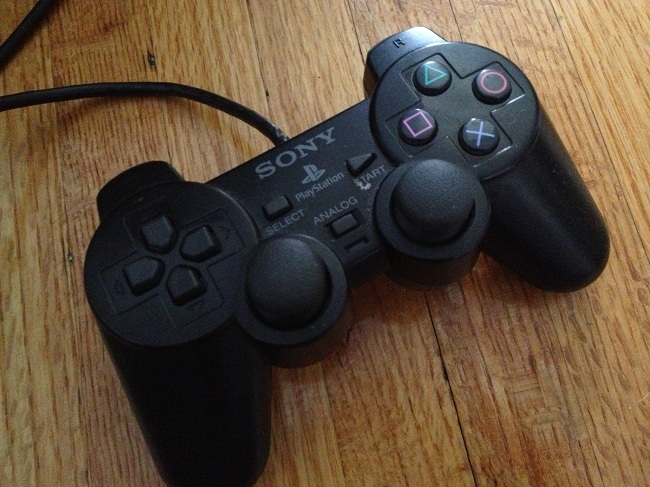It’s that time again. A wave of next-generation video game consoles are lined up for gamers, with the three console giants (Microsoft, Sony, and Nintendo) offering up their latest and greatest products. With consoles becoming a dying breed, and their sales dwindling compared to social and PC gaming, what should you know about the next generation, and which console is right for you to buy when they are released this holiday season?
Nintendo Wii-U – $299
In an attempt to get a headstart on the competition, Nintendo released their next-gen console a year in advance. As such, it is already glaringly obvious from the Wii-U sales that Nintendo’s new high-definition console has fallen quite far from the innovation of its predecessor.
The Wii-U’s two main selling points are the inclusion of HD graphics (finally) and the new gamepad. While an interesting piece of hardware, the gamepad has yet to be utilized by game developers in a way that enhances gameplay beyond that of the Wii. The inclusion of HD is something that should have been a part of the Wii from the start, and now feels like Nintendo is just playing catch-up at this point.
The problem with the Wii-U is that it ultimately doesn’t amount to much more than a glorified Wii system with new hardware that is hardly used by developers. The Wii’s innovative design was quite groundbreaking at the time, and it created a gaming market for an age group that was otherwise uninterested in gaming. Now, the Wii-U is a poor attempt at marketing towards the hardcore gamer market. Nintendo used to be the top in hardcore gaming and game consoles; however, since the release of the Wii, Nintendo fans have criticized the company for neglecting the hardcore market. The Wii-U was ambitious by trying to please both casual and hardcore markets, but the result is a console that fails to please either side of the spectrum.
Who Should Buy It: Anyone interested in a lower-priced gaming console and casual gaming who doesn’t already own a Wii, or a gamer who is really committed to Mario and Zelda games.
Microsoft Xbox One – $499
The Xbox One is Microsoft’s answer to an all-in-one media hub. The Xbox 360 was best known for its Xbox Live service, as well as its Kinect motion sensor. In the Xbox One, Kinect will be integrated right out of the box and, in addition to the regular Live service, Xbox One users will have access to movies, television, music, and internet browsing, as well as the library of games.
One of the biggest criticisms of the Xbox One was their integration of the user’s console with their network, as well as their harsh DRM (Digital Rights Management) rules. Originally, the console was required to connect to the Internet at least once every 24 hours, potentially alienating gamers who prefer to play offline. Games bought in a store were also meant to be linked to a particular player’s account in order to work, making reselling or lending a game to a friend a difficult process.
Thankfully, Microsoft recently backtracked on these due to negative feedback. To me, this says two things. First, they are actually listening to their potential buyers. Second, if they back-pedaled this easily on something they were so adamant about when the console was announced, it doesn’t send a strong sense of confidence about the Xbox One in general. While it is important for companies to listen to consumers, it is the company’s job to ultimately decide what is delivered in the final product. Innovation is the responsibility of the company itself.
Maybe they should just call it the Xbox 180.
Who Should Buy It: Anyone looking for a device that integrates various media, is particularly fond of previous Xbox products, and can afford the heftier price tag.
Sony PlayStation 4 – $399
The PlayStation 4 has been the thing of rumors for years. When the PlayStation 3 was initially revealed, its presentation and subsequent lack of promised features led to parody and ridicule. The PlayStation 4 reveal, however, was simple and to the point: the PlayStation 4 is designed for hardcore gamers, who have lacked a proper dedicated console for a long time.
The PlayStation 4 is pretty much a powerful gaming PC wrapped in a console. In addition to the powerful hardware, the PlayStation 4 does not stray far from the controller PlayStation fans have become accustomed to for nearly two decades. (Speaking of PlayStation history, there are plans to include previous PlayStation titles in a streaming cloud service to solve future problems of backwards compatibility.)
In comparison with the Xbox One, the PlayStation 4’s selling points are its price, the way they have handled used-game resale, and its Digital Rights Management. The PlayStation 4 will sell for one hundred dollars cheaper than the Xbox One. In addition, Sony’s policy towards used games (from the start) is that, if you buy a copy of the game, you have the right to trade it in, let a friend borrow it, or keep it forever.
Who Should Buy It: Serious gamers, and that’s pretty much it. As exciting as the PS4 sounds, it seems to be doing the opposite of what the Wii did years ago, and seems likely to alienate casual gamers.
Fifteen years ago, there wasn’t a lot of variation in the game market to guide the creation of new systems. However, today we have huge divides between many factions of gamers. Some systems will be best for casual gamers, while others will be better for the more serious gamers. Personally, I believe if you are a casual gamer, the perfect system already exists for you: the Wii. If you haven’t bought a Wii yet, that might be a good reason to buy the Wii-U. For the serious gamer, the PlayStation 4 seems more likely to challenge and entertain. The Xbox One seems to be somewhere in the middle, for your semi-casual, semi-serious gamers who sometimes just want to binge-watch Arrested Development instead of pwning noobs.

